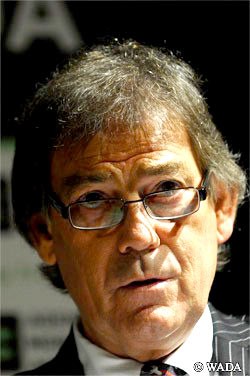Howman and Ljungqvist say that the maximum sentence is simply not being used
 The World Anti Doping Agency has indicated that it wants more four year sentences to be handed out to serious doping offenders, saying that not enough is being done to dissuade sportspeople from resorting to banned methods and practices.
The World Anti Doping Agency has indicated that it wants more four year sentences to be handed out to serious doping offenders, saying that not enough is being done to dissuade sportspeople from resorting to banned methods and practices.
Revisions to the WADA Code almost two years ago meant that the standard two year sentence was increased to a possible four year ban, yet that stiffer sanction has hardly ever been used. WADA Director General David Howman wants to see the clean athletes better protected through the enforcing of tougher bans.
“They don’t want to be lining up against people who cheat,” he told AP. “They [dopers] get a two-year penalty and, quick as a flash, they’re back again.
“This four years was something that people who were advocating stronger penalties really wanted us to include, and so it was included. But 18 months later, it’s hardly being used, if at all. When it comes to the crunch, obviously people are not willing to be as tough as they sound.”
The UCI was one of those which said that it wanted to extend the sanctions handed out. While national federations have generally not followed through on this in the past two years, its president Pat McQuaid said recently that he wanted things to change.
“I would like to see four-year sanctions coming in,” he told VeloNation in mid-October. “I have asked the anti-doping department that when they review positive doping cases and prepare the dossier to go to the national federation for following up on, that the UCI will recommend to the national federation that a four year ban be given.”
WADA vice president and IOC anti-doping official Arne Ljungqvist said that apart from the deterrent effect, a four year ban also has a sound scientific argument. He said that substances such as anabolic steroids can stay in the system longer than two years, thus meaning that some of those who were handed two a 24 month ban still benefited from the effects.
“It was that scientific evidence that made the legal people say, ‘Yes, there are good reasons for extending the ban from two years to four years in anabolic steroid cases,” he explained.
There is also the argument that a two year ban is not necessarily long enough to properly disrupt the careers of those who have cheated. Many banned athletes are able to stand down, train hard, and come back in good shape. They miss two years out of their careers but those who are considering taking shortcuts know that even if they are caught, they can return and continue to earn high amounts.
Four years, though, is different. The gap is large enough to raise serious doubts about being able to get back to the same level, and it can be easily argued that this will cause many to think twice about breaking the rules.
According to Ljungqvist, it may be up to WADA to enforce the initial four year bans by appealing a shorter sanction and forcing through a more serious penalty.
“No one has been doing it, so we are waiting for a suitable test case,” he said. “So far people are still living with the idea that two years is the standard ban, which should not be the case in serious cases like EPO and steroids and the like. We will take action once we have a good case to pursue.”
Once that happens, there will invariably be criticism that the measures are draconian and interfere with a person’s right to earn a living. However for clean athletes, that right is interfered with every time someone intentionally breaks the WADA Code, and so opposition to the principle of a four year ban is likely to be outweighed by those who see the logic of it.